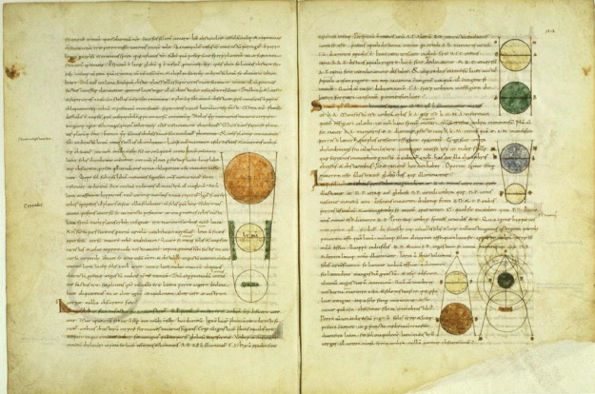
Fighting against Obscurity: Calcidius and Plato’s Timaeus (Carlo Delle Donne, Sapienza-Università di Roma)
Start time: 13:00 / End time: 14:00 / Date: 07 Jan 2021 Open to: Students within this Faculty / Staff within this Faculty / Any UOL students / Any UOL staff / Any potential postgraduate students / Any potential international students / General Public Type: Webinar Cost: Please email Rachael Cornwell (R.H.Cornwell@liverpool.ac.uk) or Daniel Lowes (D.G.Lowes@liverpool.ac.uk) for the Zoom link. Contact: For more information contact Rachael Cornwell at R.H.Cornwell@liverpool.ac.uk At a certain point of his commentary on Plato’s Timaeus (317.15 ff. Wazink), Calcidius sets out to distinguish different kinds of obscurity that can affect a text. The first to be analysed is the obscuritas iuxta dicentem: in this case, obscuritas is said to depend on either a decision (studio) made by the author (this was the case of both Aristotle and Heraclitus), or the inefficacy of language (imbecillitas sermonis). Secondly, Calcidius takes into account the obscuritas iuxta audientem, i.e. that particular kind of obscurity which is due to both the novelty and even the oddity of the discourse (cum inaudita et insolita dicuntur), and the intellectual inadequacy of the listener (cum is qui audit pigriore ingenio est ad intellegendum). Thirdly, Calcidius mentions a kind of obscurity which is said to be iuxta rem. In other words, this obscurity is relative to any res (i.e. any object of analysis) which is such that it cannot be precisely and immediately understood. Note that Calcidius takes this to be the case of Plato’s chora: for, neither it can be perceived through the means of sense perception, nor it can be intellectually grasped. But, as Calcidius clarifies, the presence of a certain degree of obscurity in a text does not necessarily put its veritative value at risk, just as the being true of a text does not automatically entail its being clearly expressed (non statim quae vere dicuntur aperte etiam manifesteque dicuntur). Unfortunately, to this ancient example of hermeneutics no extensive study has ever been devoted, as Professor Franco Ferrari has often pointed out. So, my objective is to extensively scrutinise the general classification of obscuritates provided by Calcidius and then to relate it to the Middle Platonic strategies aimed at neutralising Plato’s obscuritas. When you click on "Add this event to my calendar" your browser will download an ics file. Microsoft Outlook: Download the file, then you may be able to click on "Save & Close" to save it to your calendar. If that doesn't work go into Outlook, click on the File tab, then on Open, then Import. Select "Import an iCalendar (.ic or vCalendar file (.vcs)" then click on Next. Find the .ics file and click on OK. Google Calendar: download the file, then go into your calendar. On the right where it says "Other calendars" click on the arrow icon and then click on Import calendar. Click on Browse and select the .ics file, then click on Import. Apple Calendar: download the file, then you can either drag it to Calendar or import the file by going to File > Import > Import and choosing the .ics file.About the event
What is Add this event to my calendar?